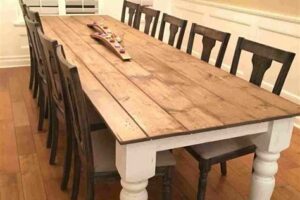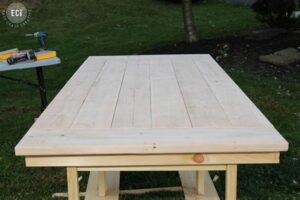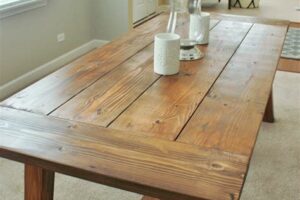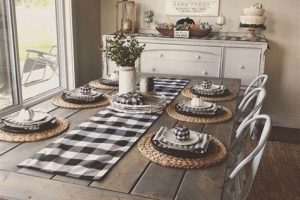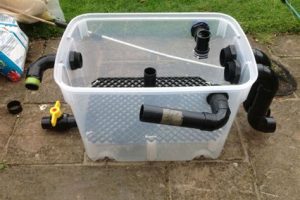Looking to build a farm fence on your own? Discover the ultimate DIY guide for constructing a sturdy and reliable farm fence. Learn about different materials, measurements, and techniques to ensure the safety and security of your livestock. Enhance your farming skills with step-by-step instructions and expert tips for a successful DIY farm fence project.
Are you looking to enhance the security and aesthetics of your farm? Look no further than a DIY farm fence! With its numerous benefits, a well-constructed farm fence can provide you with peace of mind while adding charm to your property. Whether you have livestock to protect or simply want to establish clear boundaries, a sturdy farm fence is an essential investment. Not only does it keep your animals safe and prevent potential intruders, but it also adds value to your farm. In this article, we will explore the various advantages of DIY farm fences and provide you with essential tips for constructing one that suits your needs and preferences.
Introduction
In order to protect your farm and its inhabitants, a sturdy fence is essential. Building your own farm fence not only saves you money but also allows you to customize it according to your specific needs. This article will guide you through the process of building a DIY farm fence, providing you with all the necessary steps and tips for a successful project.
1. Planning and Preparation
The first step in building a DIY farm fence is proper planning and preparation. Assess the area where you want to install the fence and determine the length and height required. Consider the type of animals you need to contain and any potential predators. Make a list of materials needed, such as posts, rails, wire, and any additional tools.
2. Choosing the Right Materials
The choice of materials is crucial for the durability and effectiveness of your farm fence. Select pressure-treated wooden posts that are resistant to rot and insect damage. For the rails, opt for sturdy and weather-resistant materials such as cedar or vinyl. When it comes to wire, consider the thickness and strength suitable for your animals.
3. Digging Post Holes
To ensure a stable fence, start by digging post holes along the intended fence line. Use a post hole digger or an auger to create holes with a depth of at least one-third the length of the post. Space the holes evenly, typically every 6 to 8 feet, depending on the length of the rails.
4. Setting the Corner and End Posts
The corner and end posts are critical for providing support and stability to your farm fence. Set these posts first by placing them in the respective holes and ensuring they are plumb. Use a level to ensure they are perfectly vertical and then backfill the holes with soil or concrete for added strength.
5. Installing the Rails
Once the corner and end posts are securely set, it’s time to install the rails. Attach the rails horizontally between the posts, ensuring they are level and evenly spaced. Use galvanized nails or screws to secure the rails to the posts, making sure they are tightly fastened.
6. Adding Wire Fencing
If you need additional security or containment, adding wire fencing to your farm fence is essential. Roll out the wire along the length of the fence, stapling it to the posts every few feet. Make sure the wire is taut and properly secured to prevent any sagging or gaps.
7. Gate Installation
For easy access to your farm, installing a gate is necessary. Measure the opening and purchase a pre-made gate or build one yourself using similar materials as the rest of the fence. Attach hinges to the gate and hang it on sturdy posts, ensuring it opens and closes smoothly.
8. Regular Maintenance
Once your DIY farm fence is complete, regular maintenance is crucial for its longevity. Inspect the fence periodically for any damage, such as loose nails or broken wires. Replace any worn-out components promptly and apply protective coatings or stains to the wooden elements to prevent deterioration.
9. Considerations for Animal Safety
When building your farm fence, keep the safety of your animals in mind. Ensure the fence is tall enough to prevent them from jumping over and that there are no gaps where they could squeeze through. If you have horses, consider adding electric tape or wire to prevent them from chewing on the fence.
10. Legal Requirements
Before building a farm fence, it’s essential to check local regulations and any legal requirements related to fencing. Some areas may have specific height restrictions or materials allowed for agricultural fences. Complying with these regulations will prevent any potential issues with authorities in the future.
DIY Farm Fence: Enhancing Security and Creating Boundaries for Your Property
Planning and designing a farm fence requires meticulous attention to detail to ensure efficiency and effectiveness. Factors such as property dimensions, the purpose of the fence, and the type of materials needed should be carefully considered. By taking these aspects into account, you can design a fence that not only meets your needs but also enhances the aesthetics of your farm.
1. Planning and Designing your Farm Fence: Ensuring Efficiency and Effectiveness
Before starting any construction, it is essential to plan and design your farm fence thoroughly. Begin by determining the dimensions of your property and marking the boundaries. Consider the purpose of the fence, whether it is to keep livestock in or predators out, and decide on the appropriate height and strength accordingly.
Additionally, think about the type of materials you will require. Options such as wood, vinyl, and wire mesh offer different benefits and appeal depending on your preferences, budget, and climate conditions. Evaluate the maintenance requirements of each material to ensure it suits your long-term needs.
2. Choosing the Right Materials: Durable and Cost-effective Solutions
Selecting the right materials is crucial for a durable and cost-effective farm fence. Wood fences provide a traditional and rustic look, while vinyl offers low maintenance and longevity. Wire mesh fences are ideal for containing small animals and preventing predators from entering your property.
Consider factors such as weather conditions, maintenance requirements, and budget when choosing the materials for your farm fence. It is important to strike a balance between durability, cost-effectiveness, and aesthetics to create a fence that meets your specific needs.
3. Erecting and Installing the Fence: Step-by-step Guidance for a Sturdy Structure
Constructing a farm fence requires careful execution to ensure a sturdy and reliable structure. Begin by marking the boundaries of your property and placing corner posts. These posts provide stability and support for the overall fence structure.
Next, install intermediate posts and tensioners at regular intervals along the fence line. Proper alignment of the posts is crucial to maintain the integrity and strength of the fence. Securely attach the wires to the posts, ensuring they are taut and correctly tensioned. Adjusting the tension of the wires will contribute to the overall stability and longevity of the fence.
4. Gate Installation: Secure Entry Points without Compromising Safety
Integrating a gate into your farm fence design is essential for convenient access while maintaining security. Consider the most suitable gate type based on your requirements, whether it be swinging or sliding. Factors such as clearance, strength, and ease of operation should be taken into account.
Ensure proper installation of the gate, including the use of sturdy hinges and latches. Implement safety measures such as locks to prevent unauthorized entry and enhance the overall functionality and protection of your farm fence.
5. Electric Fencing: Adding an Extra Layer of Protection
Electric fencing can be an effective deterrent for both livestock and predators. Carefully choose the appropriate energizer, insulators, and conductors to achieve optimal performance and safety. Placing warning signs around the fence perimeter is essential to alert individuals to the presence of an electric fence.
Regularly monitor the voltage of the electric fence to ensure its effectiveness and prevent accidents. Proper maintenance, such as checking for damaged wires or faulty components, is crucial to maximize the efficiency and lifespan of your electric fence.
6. Regular Maintenance: Extending the Lifespan of Your Farm Fence
Maintaining your farm fence is essential to extend its lifespan and ensure its continued effectiveness. Regularly inspect the fence for any signs of damage, such as loose wires, rotting wood, or rusted metal. Promptly repair any damages and schedule routine maintenance tasks, such as painting or re-tensioning wires, to prevent further deterioration.
7. Effective Weed Control: Preserving the Integrity of Your Farm Fence
Weeds and vegetation growing around your farm fence can compromise its stability and longevity. Regularly mow or trim the vegetation along the fence line to prevent it from encroaching and weakening the structure. Applying herbicides or employing manual removal tactics can help combat persistent weed growth and maintain the integrity of your fence.
8. Enhancing Visual Appeal: Balancing Functionality and Aesthetics
While functionality and security may be the primary goals of your farm fence, paying attention to its visual appeal can greatly enhance the overall aesthetics of your property. Consider incorporating decorative elements, such as ornamental post caps or decorative wire patterns, to give your fence a distinct and appealing look.
By finding a balance between practicality and aesthetics, your farm fence can become a defining feature of your property that adds value and charm. Regular maintenance and periodic inspections will ensure that your fence continues to serve its purpose while enhancing the security and boundaries of your property.
A DIY farm fence is a cost-effective solution for property owners looking to secure their land and protect their livestock. However, it is important to consider the advantages and disadvantages of opting for a DIY approach rather than hiring a professional. In this article, we will explore the benefits and drawbacks of installing a farm fence yourself.
Advantages of a DIY Farm Fence:
- Cost Savings: One of the primary advantages of a DIY farm fence is the potential cost savings. By purchasing materials directly and doing the labor yourself, you can avoid the additional expenses associated with hiring a professional contractor.
- Customization: Installing a farm fence yourself allows you to have complete control over the design and layout. You can tailor the fence to suit your specific needs, whether that involves accommodating different livestock types or adapting to the landscape of your property.
- Flexibility: With a DIY approach, you have the flexibility to work on the fence at your own pace. You can schedule the project around your other responsibilities and commitments, ensuring minimal disruption to your daily routine.
- Sense of Accomplishment: Successfully completing a DIY farm fence project can be incredibly fulfilling. It provides a sense of accomplishment and pride in knowing that you have personally contributed to the security and well-being of your animals.
Drawbacks of a DIY Farm Fence:
- Time and Effort: Installing a farm fence requires significant time and effort. From planning and preparing the site to digging post holes and securing the fencing materials, it can be a physically demanding task that may require multiple days or even weeks to complete.
- Lack of Expertise: Unless you have prior experience or knowledge in fence installation, there is a chance of making mistakes or overlooking crucial details. This could compromise the effectiveness and durability of the fence, potentially leading to costly repairs or replacements in the future.
- Tools and Equipment: DIY farm fence installation often requires specialized tools and equipment. If you do not have access to these resources, you may need to invest in purchasing or renting them, adding to the overall cost of the project.
- Limited Warranty: Unlike professional fence installation, a DIY farm fence typically does not come with a warranty. This means that any issues or defects that arise after completion will have to be resolved at your own expense.
In conclusion, a DIY farm fence can be a viable option for property owners who are willing to invest the necessary time, effort, and research. It offers cost savings, customization options, flexibility, and a sense of accomplishment. However, it is important to consider the drawbacks such as the lack of expertise, required tools and equipment, and potential absence of warranty. Ultimately, the decision between DIY and hiring a professional should be based on your individual capabilities, resources, and priorities.
Dear valued blog visitors,
Thank you for taking the time to read our recent article on DIY farm fences. We hope that you found the information provided helpful and insightful. As a professional in the field, we understand the importance of having a well-constructed and secure fence on your farm. In this closing message, we would like to summarize some key points discussed throughout the article and share some final thoughts.
Firstly, we emphasized the significance of proper planning before embarking on any DIY fence project. By carefully considering your specific needs and goals, you can ensure that your fence will effectively serve its purpose. Taking accurate measurements of the area you want to enclose, identifying potential obstacles, and understanding local regulations are crucial steps that should not be overlooked.
Next, we delved into different types of materials commonly used for farm fences and their respective pros and cons. Wood, for instance, is a popular choice due to its natural aesthetic appeal and affordability. However, it requires regular maintenance to prevent rotting and warping. On the other hand, vinyl and metal fences offer durability and low maintenance but come with a higher price tag. Ultimately, the choice of material depends on factors such as budget, preference, and the intended use of the fence.
Lastly, we offered valuable tips and techniques to help you successfully construct your own farm fence. From digging post holes and setting posts in concrete to properly attaching rails and securing the fence against external forces, we covered essential steps to ensure a sturdy and long-lasting structure. Additionally, we highlighted the importance of safety during the construction process, including wearing appropriate protective gear and using the right tools.
In conclusion, building a farm fence is a significant investment that requires thorough planning, careful material selection, and precise construction techniques. While this article provided a comprehensive overview, we encourage you to seek additional resources and professional advice if needed. Remember, a well-built fence not only enhances the aesthetic appeal of your farm but also ensures the safety and security of your livestock and property. We hope that our article has inspired you to take on the challenge of constructing your own DIY farm fence and wish you every success in your endeavors.
Thank you once again for visiting our blog, and we look forward to providing you with more informative content in the future.
Sincerely,
The [Your Blog Name] Team
.
People also ask about DIY Farm Fence:
-
What materials are needed to build a farm fence?
To build a farm fence, you will need the following materials:
- Wooden or metal fence posts
- Wire or mesh fencing
- Nails or screws
- Fence staples
- Gate hardware (if needed)
- Post hole digger or auger
- Level and measuring tape
- Wire cutters or pliers
- Hammer or drill
-
How do I determine the size of my farm fence?
Before building your farm fence, it is important to determine the size or length you will need. Measure the perimeter of the area you want to enclose using a measuring tape. Make sure to account for any gates or openings you may need. It is recommended to consult with a professional or research local regulations to ensure your fence meets any specific requirements.
-
What type of farm fence is best for containing livestock?
The type of farm fence that is best for containing livestock depends on the type and size of animals you have. Some common options include:
- Electric fences: These can be effective for containing many types of livestock, as animals learn to respect the electric shock they receive when touching the fence.
- Woven wire fences: These provide a sturdy barrier and are commonly used for larger animals like horses and cattle.
- Barbed wire fences: Suitable for containing cattle, barbed wire fences are cost-effective but may not be appropriate for smaller animals.
- High-tensile wire fences: These fences are durable and inexpensive, making them a popular choice for livestock containment.
Consider consulting with a local farm expert or veterinarian to determine the best type of fence for your specific livestock.
-
What are some important factors to consider when building a farm fence?
When building a farm fence, it is crucial to consider the following factors:
- Purpose: Determine the main purpose of your fence, whether it is to contain livestock, protect crops, or mark property boundaries.
- Budget: Set a budget for your fence project, including material costs, labor, and any additional tools or equipment needed.
- Maintenance: Consider the long-term maintenance requirements of the fence material you choose. Some materials may require more upkeep than others.
- Local regulations: Research any local regulations or zoning laws that may affect the construction of your farm fence.
- Topography: Take into account the natural landscape and terrain of your land, as this may impact the design and installation process.
-
Should I hire a professional to build my farm fence?
While building a farm fence can be a DIY project, hiring a professional can offer several advantages. Professionals have the experience, tools, and knowledge to ensure the fence is properly installed and meets any specific requirements or regulations. They can also provide valuable advice on the best materials and design for your specific needs. If you are unsure about your own abilities or lack the necessary time and resources, it may be beneficial to hire a professional to build your farm fence.

